There are many benefits to growing your own organic food, however, it can be challenging. These 10 foods right from your kitchen pantry help repel pests, boost soil nutrients, and support an organic garden naturally.
Posts feature partner companies & may be sponsored. Post contains affiliate links & I will be compensated if you make a purchase after clicking on links. As an Amazon Associate I earn from qualifying purchases.
Table of Contents
How do you start an organic garden for beginners?
I have had my plants and seeds in the ground for a month now and I am already beyond frustrated with this years organic garden. Two weeks of rain has the basil looking spotty, the leaves falling off the pepper plants and holes in the rhubarb leaves where the slugs have been feasting.
Organic gardening is healthy for us and the environment but it is not always easy. Mother’s Day will be spent out in the back yard weeding, replanting, and attempting some natural pest control. Yes, I plan on spending Mother’s Day in the garden….my favorite spot to be but I never have enough time to spend there.
If you are attempting an organic garden this year, do not give up at the first sign of trouble. Start small, talk to other local gardeners, and keep track of your successes and failures in a garden journal. I highly recommend heading to your local nursery and speaking with the plant care experts there. They are a GREAT resource for starting an organic garden.
✯Don’t want to miss the next post?✯ Follow Turning the Clock Back on Facebook | Twitter | Pinterest Or join the private Facebook group for simple tips on going green!
Use These 10 Foods in Your Organic Garden
There are many natural products right in your own kitchen that can make your organic garden a success. Try those FIRST. And if they don’t work, move on to commercial organic gardening products. As a last resort, grab the chemical treatments if you must. Some garden pests and diseases are persistent! Here is my list of foods that can make your organic garden flourish this summer!
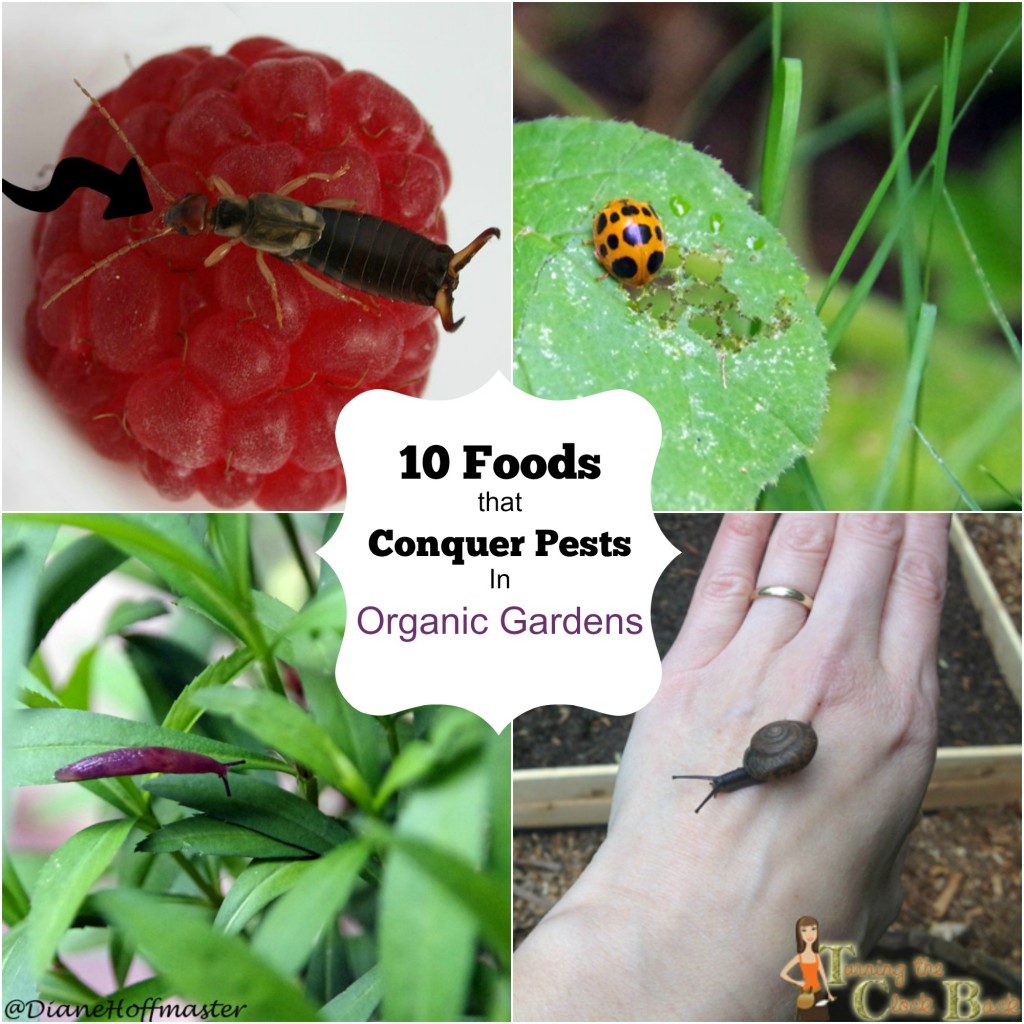
Using Vinegar in the garden
Make a vinegar weed killer for broad spectrum weed killing. This will kill any plant you spray it with so DON’T spray your tomatoes and cucumbers!
Fill a spray bottle with apple cider vinegar and add one tablespoon of dish washing liquid. Spray weeds in the hottest part of the afternoon. This will kill the leaves but not necessarily the roots. You will probably need to do this multiple times to really kill the entire plant.

How to use Coffee in the garden
Snails and slugs HATE coffee. Silly creatures, right? Spray your plants with coffee or sprinkle used coffee grounds around your garden plants to repel these nasty, slimy little things. Earthworms love coffee grounds and they make a great soil conditioner while still repelling pests.

Using Hot peppers to repel animals
If you have a dog that likes to get into your garden bed, you need to look no further than your vegetable bin for a solution. My own dog prefers trampling all over the plants rather than eating them but hot peppers will keep your dog from nosing around too close to the plants.
Puree one hot pepper with an equal amount of water and a teaspoon of dish washing liquid. Strain into a spray bottle and spray onto plants. This will also keep squirrels away if they are a problem!
Does Garlic Repel Pests? YES!
If your organic garden is over run by pests, make a solution of garlic and hot peppers. Chop up a head of garlic and one hot pepper. Place this in a quart of water and let it sit for one hour. Strain into a spray bottle and spray on your plant leaves. Keep the remainder in the refrigerator for future use. It will last 2 to 3 weeks.
Be aware that this will also repel many pollinators so use sparingly and only when you have a real problem. If you want an endless supply of garlic, check out my post on growing garlic in your garden.
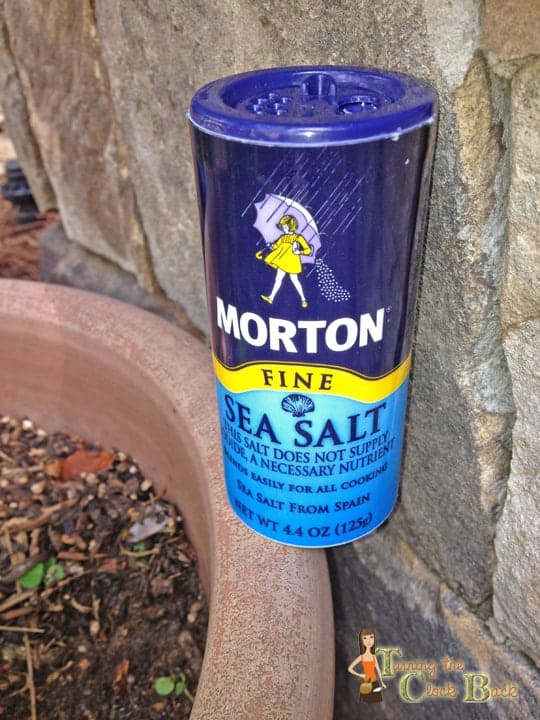
Using Salt to kill slugs:
I have been known to head out into my garden after dark to sprinkle slugs with salt. They are a huge problem on my rhubarb plants and my husband swears he can hear me laugh gleefully every time I kill another one. Nothing to prepare for this organic garden treatment.
Just throw on your garden shoes, grab a flashlight, and take your salt shaker out for a little slug hunting. Now, if only this worked on earwigs, I’d be all set. Those little buggers drive me nuts!
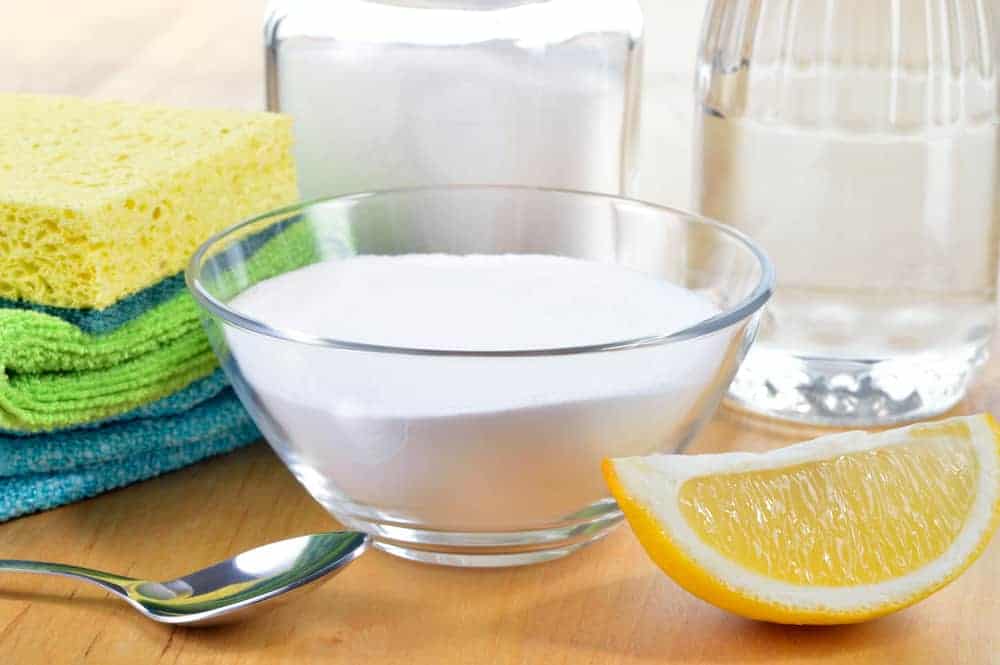
Baking Soda fungal treatment for gardens:
Baking soda makes a great fungal treatment in your organic garden. Combine 1 tablespoon of baking soda, 1/2 tablespoon of oil, and 1 cup warm water. Stir to dissolve. Add 2 more quarts of tap water and put solution into a spray bottle.
After removing the worst of your diseased leaves, spray the rest with your baking soda spray. Do this ever few days until you no longer see any disease. This solution is best made fresh every time you need it and should be applied either first thing in the AM before the sun comes up or at dusk. Avoid the heat of the day or you may burn your leaves.

Using Eggshells in the garden:
When you are done cracking open your eggs, rinse the egg shells and crumble them into your garden. The egg shells will break down, providing food for your plants. At the same time, the sharp edges of the shell pieces will help keep caterpillars, slugs, snails, and other soft bodied pests from eating your plants.
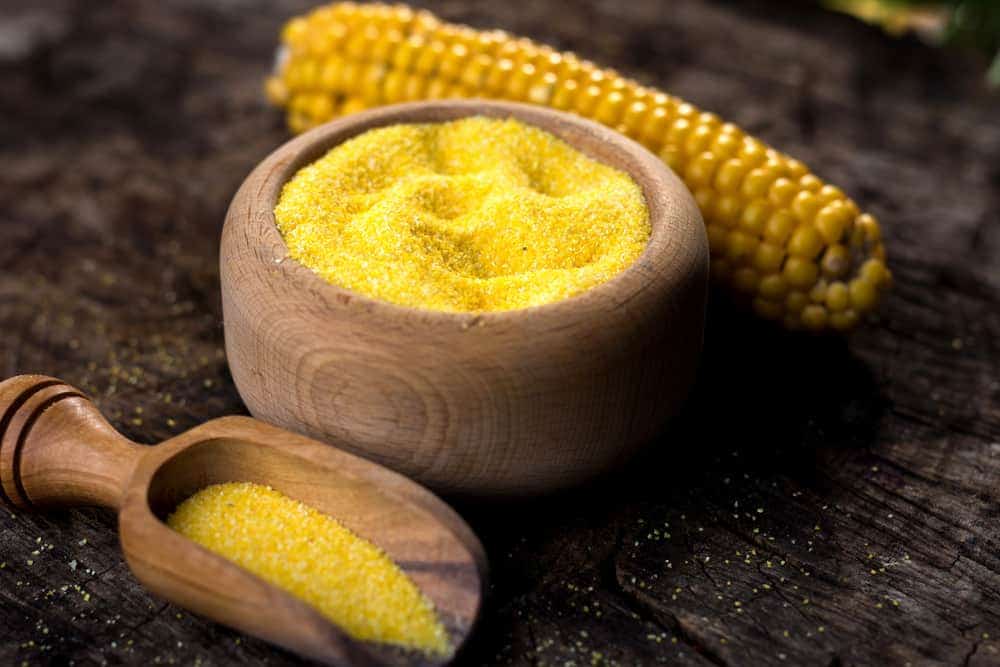
Cornmeal garden fungicide:
Dry: Work 2 pounds of cornmeal into the soil for every 100 square feet. Water well, to activate the fungus killing properties. One application per season is usually sufficientSpray: What’s called ‘cornmeal juice’ can be made by soaking 1 cup of cornmeal in 1 gallon of water overnight. Strain the liquid and use as a spray on susceptible plants.

How to Use Beer To Repel Pests
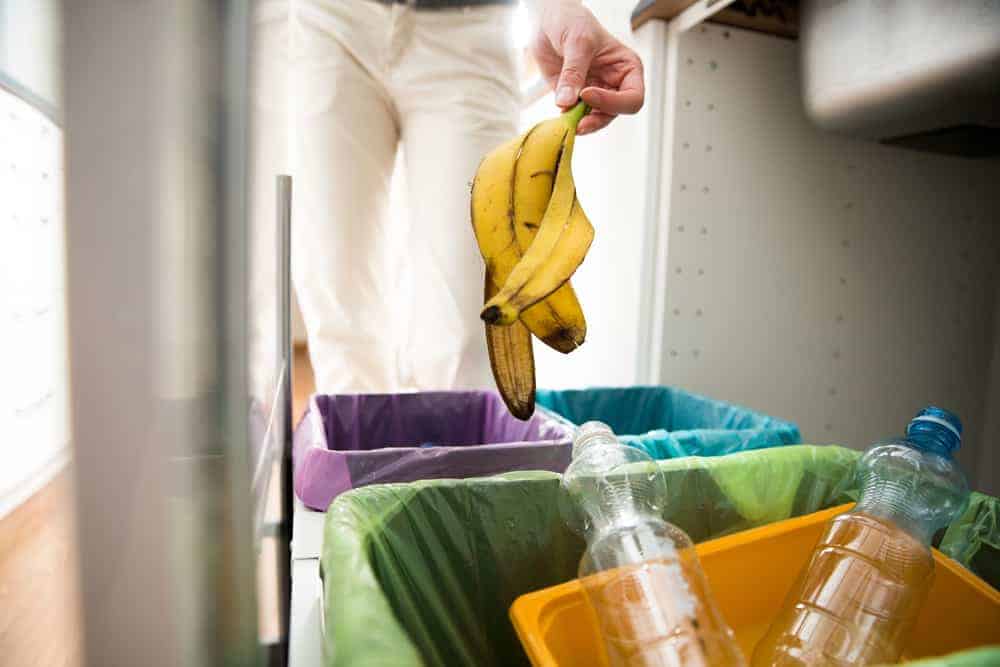
Make Compost From Kitchen Scraps
Like this post about organic gardens? Read these gardening tips, too:
- Edible Gardening Tips and Foodscaping Ideas for Beginning Gardeners: Nothing says that your yard can’t look pretty AND be edible, right?
- Spring Gardening Tips: Preparing Your Garden for Planting: Before you begin planting a garden, here are a few spring gardening tips to help you start preparing your garden for planting.
- How To Start Growing Peanuts In Your Garden: Growing peanuts is not as easy at it seems! I am going to share my experience growing peanuts in the garden, however you can also grow peanuts in containers as well.

Diane is a professional blogger and nationally certified pharmacy technician at Good Pill Pharmacy. She earned her BS in Microbiology at the University of New Hampshire and has worked in cancer research, academics, and biotechnology. Concern over the growing incidence of human disease and the birth of her children led her to begin living a more natural life. She quickly realized that the information she was learning along the way could be beneficial to many others and started blogging and freelance writing to share this knowledge with others. Learn more about her HERE.

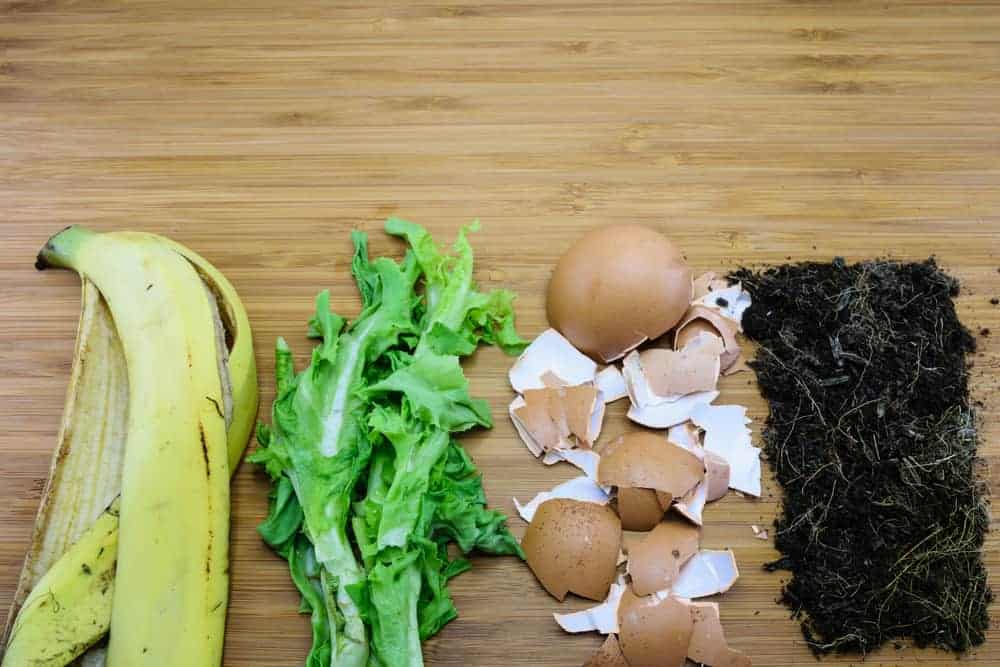
Thanks for the tips on organic gardening. I will use some of them this year.
good luck! Hope your garden is productive!